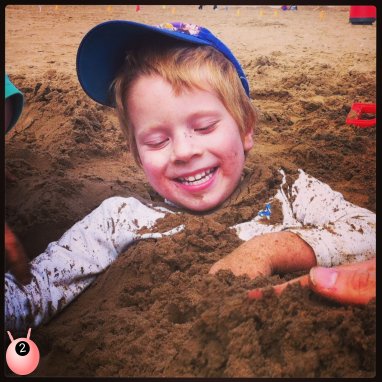Sensory Processing Disorder – Noticing Something is different
So you are worried that your child isn’t quite the same as others – either their peers or their siblings. May be you are having difficulties with them for simple day to day things like washing or brushing their hair, or teeth, cutting their nails, putting on their clothes or not sleeping. Maybe they have issues with food. Or it could be that they are not learning as much as they should. They could be taking risks or unable to sit still.
Whatever it is about your child it has led you to ask yourself whether there is `something’ – and if that something is Sensory Processing Disorder.
Sensory Processing Disorder – in the beginning for us
I first knew there was something different about our son when he was 2 years old. To me he was obviously Autistic. He had always had issues with sleeping, he was falling behind his peers, had quirks (like standing on his head/spinning), and covering himself in things (like paint). When we were referred to the Pediatrician one of the things she mentioned was about Sensory Processing Disorder.
I had never heard of it. It was to do with how he was rubbing her tights. I later notice how he touched people a lot. She referred him to an Occupational therapist. We were advised to read The Out of Sync child – for which I nodded my way through. By the time we went to a meeting about how to cope with Sensory Processing (or should I say how to help your child learn to cope with it) I already had so many things in place for him. You need to learn about what areas affect your child – if they are under-responsive, over-responsive – or if they change from one to the other.
What is Sensory Processing Disorder?
We make sense of the World around us through our senses. We process so much information – about the sounds, smells, textures, our position, what we can hear, how much we are moving, and so on, and then the brain filters out which bits of information we need right now. They then tell us how to respond appropriately. For example if we take a sip of coffee that is too hot, the senses will tell us not to drink it, to move the cup away from us – what position our body is in, in order to do this. We develop preferences for things, as some sensory input works better for some rather than others. For example, some people may work better listening to music, and others prefer the quiet. Sometimes this can be harder than others, and can depend on your mood. For example, you may find it harder to ignore that annoying sound when you are trying to concentrate on something difficult, and when you are particularly tired.
Sensory Processing Disorder – The Seven Senses
Those with Sensory Processing Disorder have difficulty with the brain filtering out the bits it does not need from the seven senses. Click each of the below to find out more about each sense:
The Auditory Sense (Hearing),
The Visual Sense (vision/seeing),
Proprioception (Sense of body position, from information received through the muscles, and joints – force, speed and control).
Vestibular Sense – Movement and Balance/Gravity
Tactile (touch)
Interoceptive (covering temperature)
Gustatory (taste)
Olfactory (smell)
What to Do if You Suspect Your Child has Sensory Processing Disorder
The first thing to do when you suspect Sensory Processing Disorder is to keep a diary. Read about ways that a child may be affected, and if it applies to your child. Discover ways in which you can help them. Keep track of when things are good, and when things are not so good.
Consider whether the sense may be experiencing too much of something or not enough. What things help to diffuse the situation and what things help in maintaining a happy balance? Make sure you think about the times of day – does it always happen in the mornings? Does it only happen after they’ve been energetic?
Areas that Sensory Processing Can Affect
Sensory Processing Disorder can affect many aspects of life including hygiene, sleeping, diet, relationships, self-esteem, danger, health, and education. Sensory Processing Disorder never goes away but it can be managed by a good Sensory diet. The earlier it is detected the better. There are many different Sensory Aids available to help as well as coping strategies.
Those with Sensory Processing Disorder may be known as Seekers or Avoiders – depending on whether they get not enough or too much stimulation. This can alter for each area of the senses, and it can vary from experience to experience. Just because my son (predominantly a Seeker) wants a lot of touch most of the time does not mean that he always needs more stimulation. In fact he is always touching people but often is easily irritated if someone touches him (especially hugs in the early days).
Also read:
Is Your Child a Sensory Seeker?
Sensory Processing Disorder in the UK
Common Difficulties and Ways to Help
Please if you are concerned seek professional help. This information is no way a replacement of that. I am just a mother sharing her experiences.
